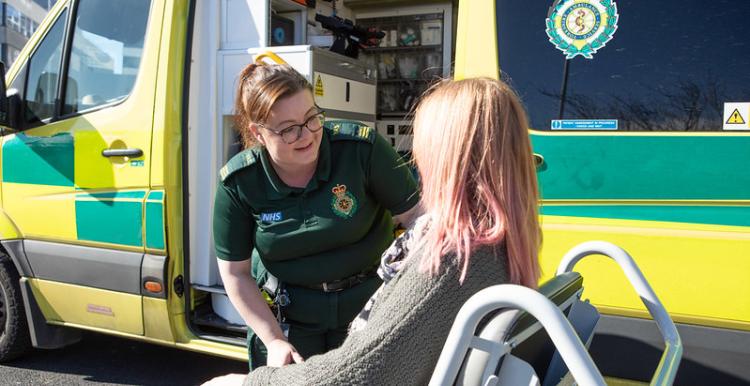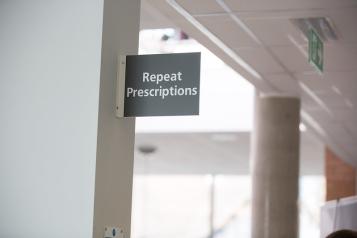Do you need help travelling to NHS services?

If you don't have good access to transport, it can mean missing out on health check-ups, routine screenings, and regular appointments for long-term conditions, such as chemotherapy.
Most people drive, use public transport, or rely on the kindness of family and friends to get to the doctor, pharmacist, or hospital on time.
If you don't have good access to transport, it can mean you're late or miss your appointment. It can be even harder if you need to attend regular appointments at a hospital for long-term conditions, such as chemotherapy treatment for cancer.
Here, we provide some information about the support available to help make this easier for you.
What support is available?
If you need help getting to appointments, find out whether you're eligible for NHS-funded support.
Can't travel because of your medical condition?
Ask your GP or the person who referred you to hospital whether Patient Transport Services run in your area. These services provide free transport to and from a hospital for:
- People whose condition means they need additional medical support during their journey
- People who find it difficult to walk
- Parents or carers of children who are being transported
If you're travelling on public transport
If you do not receive benefits but have to make frequent trips by public transport, there may be weekly or monthly season tickets that can reduce costs, or options such as booking tickets online, which may work out cheaper than the total cost of one ticket.
For students, people with disabilities and those over 60, there are often options for reduced or free travel passes.
- In some areas, people can apply for a bus pass that allows you to travel free of charge if you're over 60 or above pensionable age (depending on the area).
- National Rail offers a range of discounts and concessions for children, people over 60, and people with disabilities.
- Local Authority websites will have details on how to apply for disabled bus travel passes. These can sometimes also include a companion traveller, depending on the disability and mental capacity for independent travel.
If you're visiting hospital regularly
- If you're visiting hospital regularly, there may be options for you to receive discounted costs on parking. Some NHS Acute Trusts give out seven-day passes for visitors/patients, for example, during a maternity stay, where one vehicle that might be responsible for collecting the mother and new baby can have a free or reduced-cost pass. However, this is only offered in some places.
- In other areas, frequent visitors, for example, patients with cancer or receiving dialysis or other long-term conditions, may be given a hospital pass or free parking. In one area, local Healthwatch were able to work with the Trust on introducing season ticket discounts for frequent visitors across three hospital sites.
Could you get a refund for your hospital transport costs?
If you’re not eligible for Patient Transport Services, you could claim a refund for the cost of your travel or taking a child to hospital through the Healthcare Travel Costs Scheme (HTCS).
You may be able to benefit from the service if:
- You can’t afford the cost of travelling to hospital
- You can’t get a friend or relative to take you
Through the HTCS, you can claim a refund for your journey either directly from your hospital team, or after filling out a claim form which you can get from your hospital or online from the NHS Business Services Authority
You get full help with transport costs if you are on many income based benefits. Pensioners, students, and those in employment can also apply for NHS LIS support, including the HTCS, if they do not have savings, investments or property (not including where they live) of over £16,000
- People living in care homes may also be eligible, but their limit is £23,250
Voluntary organisations
Depending on your situation, and where you live, you can also find voluntary organisations that can help you get to hospital. For example, the Royal Voluntary Service put older people who struggle to get to hospital in touch with local volunteer drivers. Age UK also runs door-to-door transport services for older people.
Need help finding support in your area?
To see what help is available where you live, get in touch with your local Healthwatch who can point you in the right direction.

Need more advice?
Get the latest advice and information to help you stay well straight to your inbox

